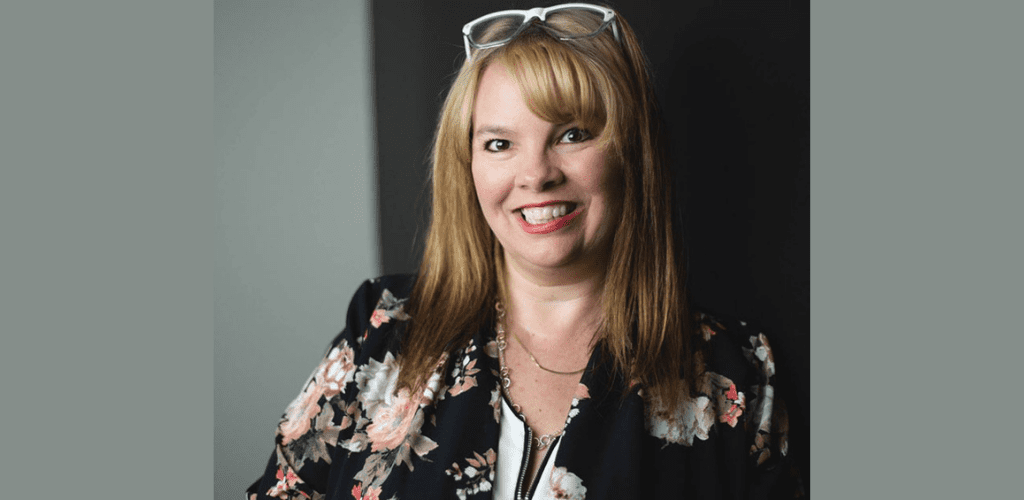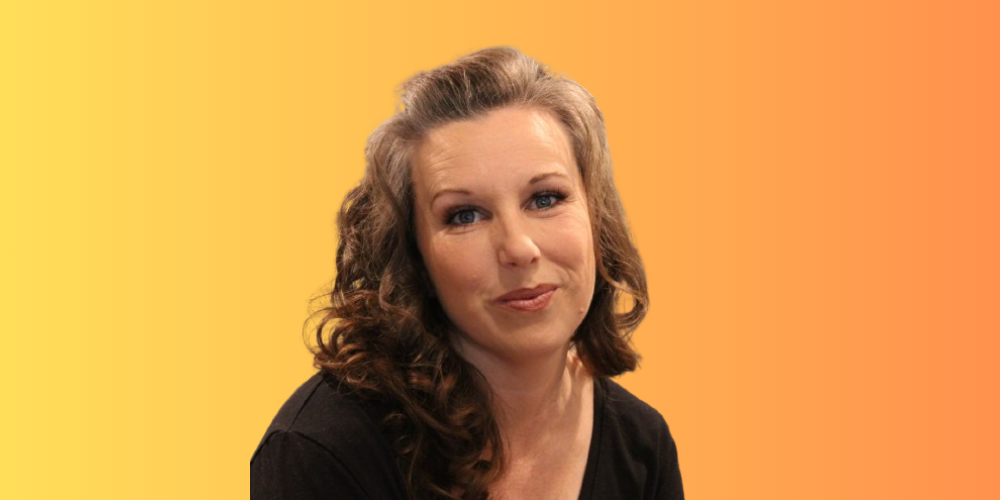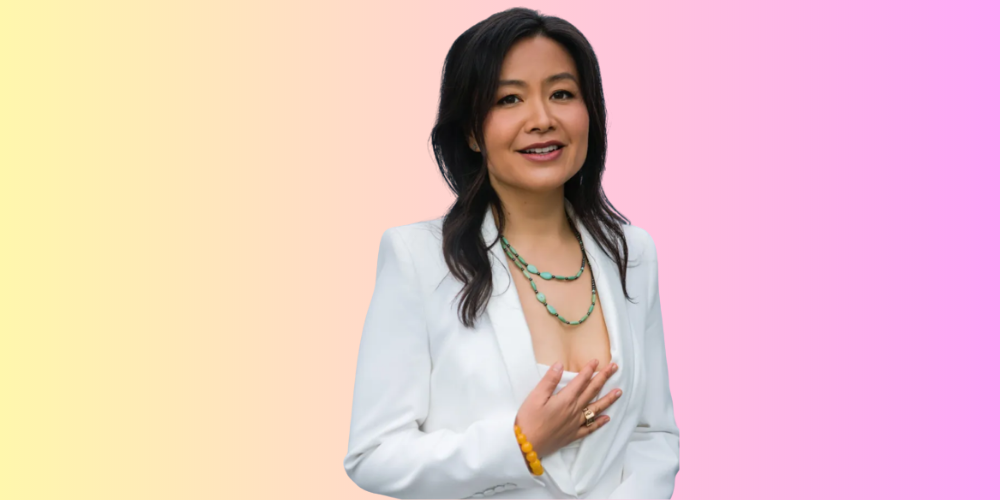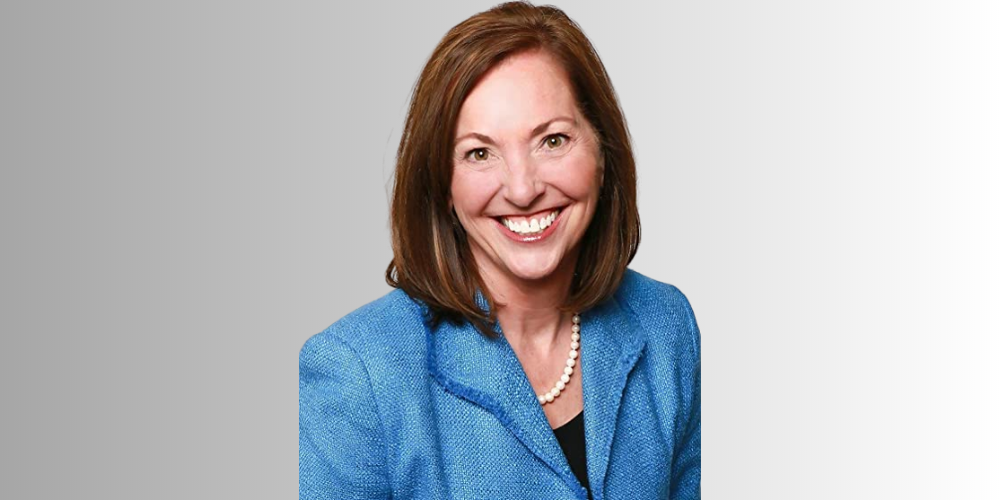Raj Girn: Over the past two decades that I’ve been in the entrepreneurial space in C-suite as a founder, those last 20 years have seen so much change because of technology and the communications. It’s changed drastically, and more so now. It’s just consistently changing. And I have to say that the one thing that helped me stay on top of my game when it came to getting by and down my respective food chain, is getting people to kind of be on this journey of change.
Because technology brings about change, which brings about massive disruption in organizations. And I’ve experienced that over the last two decades. I found this one mindset definition that I really kind of hung on to for dear life, and I want to share that with you, Belinda. It’s from a website called verywellmind.com. The first part of it is they say that a mindset refers to whether you believe qualities such as intelligence and talent are fixed or changeable traits. I want to address that. First, there’s actually two parts to this. That’s the first part. Belinda, let’s address this one first. Do you believe that mindset is fixed, mutable, or do you feel it’s a bit of both? What are your thoughts?
Here is Part Two of our conversation:
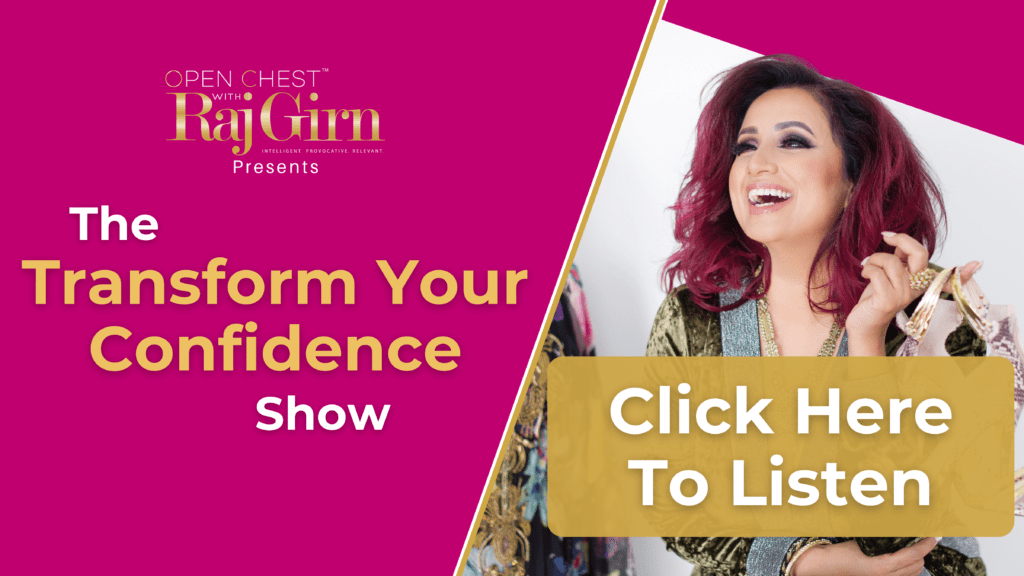
Belinda Ginter: A bit of both. I think that we have a tendency as children to go to one or the other. There’s been scientific proof of it. There was a whole book written about it that when children were told to make a choice to try something new or to stay with what’s normal, there was a clear divide, like there was an innate sense of whether to move ahead or not for these children. So I do believe that we are a little preprogramed and we come with one or the other. But I do believe over time that with proper training and proper skills and proper tools, someone who had a very fixed mindset will be able to to acknowledge it, see where they’re having a fixed mindset and move into a beautiful growth mindset.
Interesting.
So a fixed mindset, there’s many definitions out there, but to make it as simple as I could for my clients, it’s really when change is introduced and whether it gets embraced or it gets ran from. So someone with a fixed mindset likes everything to stay status quo. They love doing the same things. I always tease my husband that he has a fixed mindset when we go to a restaurant because the he orders the same things from the same restaurant.
You need to live outside the box. But they like that. They like ordinary. They like the same. So say technology gets introduced, they have an instant reaction to turn around and their reaction is, “I can’t do this. I can’t adapt.” Where a growth mindset person would get introduced the exact same scenario, same talent, same background, say, they’d be like, “Oh, I’m so excited to learn this new software. Can I dig in? Do you mind if I work on this at home and play around with it? Can you can you upload a trial for me so I can see what it is?” They dive right in. So even knowing the task is difficult and it’s the unknown, they have a sense of excitement where the other people have a sense of overwhelm. So fixed if you think of it as overwhelm and growth if you think of it as excitement.
“A growth mindset is the belief that these abilities, i.e. intelligence and talent, can be developed and strengthened by way of commitment and hard work. And I think that’s the piece that either will decide whether you will move forward successfully or not in any area of your life.” –Raj Girn
So the second part of that, just so I can encapsulate it for everyone. What you just said there, Belinda, was a growth mindset is the belief that these abilities, i.e. intelligence and talent, can be developed and strengthened by way of commitment and hard work. And I think that’s the piece that either will decide whether you will move forward successfully or not.
Absolutely! In any area of your life it is that commitment to yourself. And that’s why I say, my client successes aren’t my successes. I hate even doing testimonials. I am the worst for asking for them and the worse for getting them. I get them and I don’t even do anything with them because I believe that so strongly at my core. Because that person who had a fixed mindset had to make a decision and had to commit to moving into a growth mindset. I couldn’t do that for them if I tried. I know it is hard to change. It is hard to adapt to new things, but it is absolutely essential to your growth as a human.
Absolutely. Amen to that, sister. That’s wonderful. But let me ask you this. Let’s just add another layer and dimension to that. To say, for example, in a work-related environment, sometimes the fixed mindset is necessary and other times, the growth mindset is necessary. Can you maybe shed some light on when one should be used over the other? Like, what should a person think of to know which one they should be using?
Great question. So, if things need to be systematically done in a business, then you need to follow the systematic way. But when something new is introduced or if you have found a way to streamline something or to make something better to improve on an existing system, then that’s when it’s okay to move up to a growth mindset. So fixed mindset people, they’re not bad people. It’s just they have that resistance to change. And it’s like a knee jerk reaction. But it’s actually very good at like operational types of jobs. There are definite roles within your corporations where a fixed mindset is actually who you’re looking for. You’re looking for someone in operation. Someone is systematic, someone that follows rules and follows examples to the T each time they do a job and they’re ecstatic to do it that way. They like status quo. They don’t like much change and they like to know what’s expected of them. And they will do a fabulous job.
So we see this a lot in the accounting. Often the rules don’t change. They’re dealing with numbers. You see this when working in factories and on the floor in a factory where basically every time they go to work, they know what’s expected of them. They do the same things. That is fantastic for someone with a fixed mindset. But if we’re looking at people who are moving up the ladder, you’re going to need someone with a growth mindset, someone that can pivot, someone that can be nimble and someone that can be flexible. Because just as you said, Raj, the only thing constant in business is change lately. You know, it’s just you’re up against change so much that if someone has a fixed mindset, you having to battle that as well as the change would be a nightmare as you’re bringing people up the corporate ladder.
Absolutely. So there you have it, folks. If you haven’t been writing this down, I really suggest that you go to The Open Chest® Confidence Academy, YouTube channel or the ‘Transform Your Confidence Show’ on any podcast platform and listen to this. This is a goldmine for anyone out there who is trying to figure out what their next step is, how to better the next step and even to identify the difference between what they want for their life versus what they don’t want for their life. We’ve kind of focused this conversation more around the kind of work environment just because a lot of the people that come to me, it’s around that space. And it’s also a space that although there are many things within your personal life that factor into a lot of the things that happen on a professional level. And this is something that Belinda said right off the top of our conversation.
Oftentimes, we don’t know that that’s what’s happening. And this is where a mindset coach comes in, especially someone who is in the area of emotional kinesiology, which is something that a lot of people don’t even know exists. They don’t even know what it is. It’s something that Belinda pulls out as that special something in her bag of skills when she’s in a place where everything mindset-wise has been brought to the table. But the person still can’t quite make the shift. So this is when she goes into that area. If anyone out there is just coming into the conversation now, Belinda, can you just tell people what emotional kinesiology is so they can kind of understand the wheelhouse around your mindset practice.
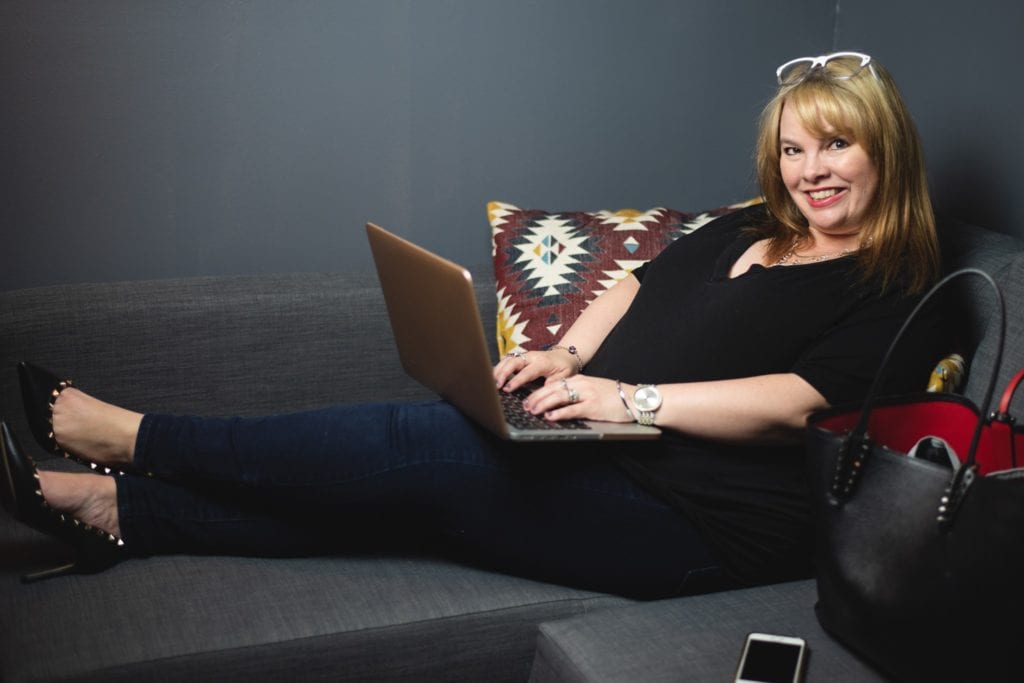
Sure. And I will make it really concise because it could go on forever. But really, if you look at mindset as me dealing with all the conscious stuff, the stuff the client already knows they have, that they come to you wanting help with. Whereas the subconscious stuff I deal with, the emotional kinesiology, when they’re coming to me going, “I don’t know why I keep making the same life sabotaging choice over and over again. I don’t know why every time that promotion comes up and I can’t even put my name in. I don’t know what that is because consciously it doesn’t make sense.” So when there’s something deeper that we just can’t get with the mindset, that’s when I pull in the emotional kinesiology and I go straight to our bodies. Our bodies are magical. Our bodies create other bodies. The body always has the answer. Always, always, always.
And I ask their body, using muscle testing. And I do it long distance. I’m done trying to define that or trying to explain it. I don’t know why it works long distance. But I can tell you after 6,500 clinical hours coaching, it works every time. And we get to the bottom of what that is and where that pattern’s coming from so we can move on. A lot of people don’t realize that a lot of things that keep them stuck is not even their stuff. It’s something they picked up from a spouse, it’s something they saw an uncle do, it’s something a kid said to them in kindergarten that they just took so dear. And you know what the other people involved, the spouse, the uncle, the other child wouldn’t even remember the situation. But sometimes things just kind of get like a snapshot and then get put in our soul. And they can affect later on in life, so we really get all of our own mind and our own thoughts and our own beliefs, and it is off the table and we really dig deep and find the clarity that the person needs.
That is incredible. Guys, I don’t know about you, but I’m getting some major chills right now. I feel like I’m consciously becoming more in tune with listening to my body and to see if there are things that perhaps are going on there that have nothing to do with regular physical activity. It’s really interesting how we don’t realize how different aspects that we don’t pick up on are actually affecting us. And this is the reason that you have to look into always being mindful and touching base with yourself and looking at the areas that you feel that you need help with, and being kind to yourself and saying, “I deserve better. I need someone that can help me get there.” And this is why we go to coaches and consultants and healers and therapists and mentors, depending on what it is we’re looking to accomplish. And the mindset shift around why that’s important is something that I hope now that we’re coming to this part of the conversation that you guys really understand the value of. And I actually want to go into a bit of a rapid fire situation with Belinda right now.
I’m ready?
Let’s just hit people up. Grab a pen and paper, folks, if you haven’t already been doing that because this is a good one. I want to ask you a few questions. So first of all, Belinda, what are the top three mindset shifts a leader should consider when buying is required from that team?
They have to really get real on where there is blockages in their team. They need to really look at where the skill set is, where they can improve it and get themselves completely out of the way.
I worked with one CEO and she goes, “I’ve taken myself completely out of the hiring process because of the fact that I, honest to gosh, love everybody. So my team does not allow me in the process to the very last two candidates and then I can make a decision.” So really being able to call yourself out with love and set your ego down at the table and say what is best for my corporation and really, which is the hardest, is get yourself out of the way.
I love that, I love that. All right, next question. What are the top three mindset shifts an employee should consider when looking to advance their career?
I love this one because I can put myself back there — in your twenties when you’re out looking for jobs or when you’re in a job. And I really think asking yourself some powerful questions like, do I deserve a raise with my performance right now? Have I just been coming in and just like checking in and checking out and that’s it? What innovative ideas have I brought to the table? When was I last getting myself out of a comfort zone and maybe volunteering for something in the company that I hadn’t done before?
I think back to to when I was in corporate and I remember getting an opportunity to write an article in the company’s publication that went to, I think, like millions of people because it went to alumni as well. And my instinct at first was like, no, I’ve never written an article in my life. I had all these belief systems about who I was as a writer. I was in my role. I had a fixed mindset at that point, but something in me told me to take the opportunity. And by pushing through that opportunity I got my first published work, and it was such a gift. But I think that I could have been calling myself out before that and saying, you know, everybody thinks they deserve a raise or deserves advancement. But unless you can really put your stamp of approval, like, yes, I gave 110 per cent every single time, you have to be able to really go there with yourself and dig deep.
That’s very powerful. And I agree with all of the above. So let me ask you my final one then. What are the top three mindset shifts — and this is a question I’ve asked a number of experts that have come on — that women need to make in order to ensure that their qualifications and experience speak louder than their gender and ethnicity.
First of all, forget that you’re a woman. Stand out as a human, see yourself as a human and those around you will start treating you like a human, too. So once you kind of drop the title, you’ll find everybody around you starts to drop the title.
“The other thing is we have been told to be kind, to be sweet and be polite and not be modest, be honest. No way, ladies, get those stilettos on and those big girl panties and you show up and you sing your accolades. Because you need to advocate for yourself because we’re still not in a place of full inclusion yet.” ~Belinda Ginter
Many times we’re still making less than our male counterparts. We still have work to do here. So by showing up and doing things in a way that the male population doesn’t expect us to. We have labels and we have people who think they know what women do and how they behave, and we’ve all heard “emotional…and cancel because of family,” We’ve heard all that stuff. And when you show up and you are their counterpart and you are not letting any of those stereotypes touch you, that’s when you go all the way.
Wow, any woman listening out there, if you are not feeling the chills right now, then you need to replay this back because this was a chill moment. It’s something that I’m very familiar with. But listening to it out loud still gives me chills. Belinda, you are a wealth of wisdom. I could speak to you forever. And you know that we’re going to be having you back here because we’ve only just touched this iceberg. That is this conversation. But before I let you go, I want to ask you a little bit about the role that spirituality plays also in the mindset shifting that we look at today.
And I want to ask you this because spirituality plays a huge role in my personal leadership style, in addition to mindset and a number of other things. And, as I grow, so does my thoughts around my team and our collective work product towards fulfilling the corporate vision.
“I believe that unpacking and healing comes from practicing spirituality. I really am an advocate for that. I’m proof of that. And I do this to administering daily meditation practice and dedicated reiki clearing protocol because I’m also a reiki practitioner.” ~Raj Girn
And what I mean by that is that I believe that every day, looking after your wellness spiritually in a world that is hitting you from every angle with its opinion on how you should feel, look and think about yourself and others, I think the only way to be able to deflect that and stay within your zone right, your lane or whatever you want to call it, is to have a daily practice that looks after your spirit, the core of who you are as an identity. So I want to ask you around that, because I know that you are also a believer in that Belinda.
And that’s why I’m where I am. If you look at the statistics, I should have taken over my parents house in low income housing. Like, that’s what happens. It’s a poverty cycle. People don’t break it. The stats are low. But it was that vision of something better. It was really being able to use the power of visualization to and I continue to use it daily. And I thank Wayne Gretzky because he has a famous quote from years ago when I was a kid. When he was interviewed by a sports announcer, he said, “I see every puck go in the net before I even step on the ice.”
“I see every puck go in the net before I even step on the ice.” –Wayne Gretzky
My Gosh.
And to this day, I think of him every time. And so I have lived my life by that quote. And thank you, Wayne, if you’re listening, which I assume you are, because everybody should be listening to Raj’s podcast. And if you know him and he’s not listening, please forward it to him.
But that was a pivotal part in my development where I had that aha moment, as Oprah says, and was able to say, “Wow, there really is power in visualization.” So visualization is so key for me. But as you said, meditation, nothing happens until you get quiet. No problem can be solved. And if you use this kind of visualization, when you’re in it, in whatever situation that is, you’re in the mucky water.

So if you picture yourself in a river and when you’re standing in it, you know that when you’re standing in a river, it gets all mucky and you can’t even see the ground. But if you stay in it long enough, what will happen is the dirt will settle. And you will hear the answers and you will see the clarity, you can see right down to the bottom, you can see the frogs and you can see everything in this lake. But it happens when you stay still and when you get quiet. So every answer that you’re seeking is within yourself if you just get quiet enough and make that a priority daily to do so.
I really agree with everything you’re saying there, but it’s interesting because a friend of mine who is very deep rooted in the practice of meditation, she shares something with me that I want to share with you and also with our audience here, because it really hit home for me. And that is she said to me that “prayer is when you are talking to God and meditation is when he’s speaking back to you.”
I wholeheartedly believe every word of that and just from experience, just doing it. I have my prayer time, too. I have my scripture and I have the time where I read amazing works from from visionaries around the world. But it is before I get quiet and it is before I get my answers or I get my direction for the day. I get tons of engagement on my personal Facebook posts, and the only reason everyone’s always like, “How do you do it? Like from a marketing standpoint?” And I’m like, “First of all, it’s not marketing. Second of all, I write what comes to me during my meditation time.”
”Every answer that you’re seeking is within yourself if you just get quiet enough, and make that a priority daily to do so.” –Belinda Ginter
Because often I find it’s not just a personal message, it’s a global message. And what happens is people see it and they’re like, “How did you know I was feeling that way? Or that so resonates with me.” It’s amazing the comments that come out of it, but it’s not my voice. I’m just being that hollow vessel that things can come in and go out. And that’s why I take no credit for my clients’ successes. My job, as your job Raj is, is to stay as clear and as grounded as possible so that we can relay those messages and further ourselves and further the people that come in contact with us.
Those are the best final words to end this conversation and this episode, folks. Oh, I just feel like having that moment to be able to breathe. And I know that those of you who resonated with this conversation, that you also have that moment where you just breathe. Thank you so much, Belinda. You are just a gem. Anyone that gets the opportunity to work with you is very lucky and is actually being called to work with you. Again before we close out, can you share with anyone that kind of tuned in a little later on in the show, how can they get a hold of you?
Absolutely. So you can reach me at my website, which belindaginter.com at [email protected] for email. And if you’re old school like me, and you don’t mind a phone call here and there or text, you can definitely have that personal touch at 416-705-7974.
Thank you so much, my darling. I cannot wait until the next time I have you on.
I’m excited.
Oh my God. You’re killing me lady. You are just a wealth of wisdom. And anyone that gets the opportunity to listen to you or to work with you is so lucky it’s going to change their lives once again. Thank you so much, my dear. And I look forward to the next time we have you back.
As do I. Thank you, Raj.
Thank you so much for staying till the end. I really hope you enjoyed the show. Before you leave, I would love your support by subscribing to my show and letting everyone know about it and have them come take a listen. I would sincerely appreciate you joining me at LinkedIn, Facebook, Instagram and YouTube search Raj Girn and The Open Chest® Confidence Academy. Until next week. I hope you continue to cultivate your own ecosystem so that everyone in and around it is empowered by your mission to elevate them all. See you next week.
To Contact Belinda Ginter: Instagram @unstoppablebelinda_ Website: www.belindaginter.com Email: [email protected] Phone: +1 416-705-7974



